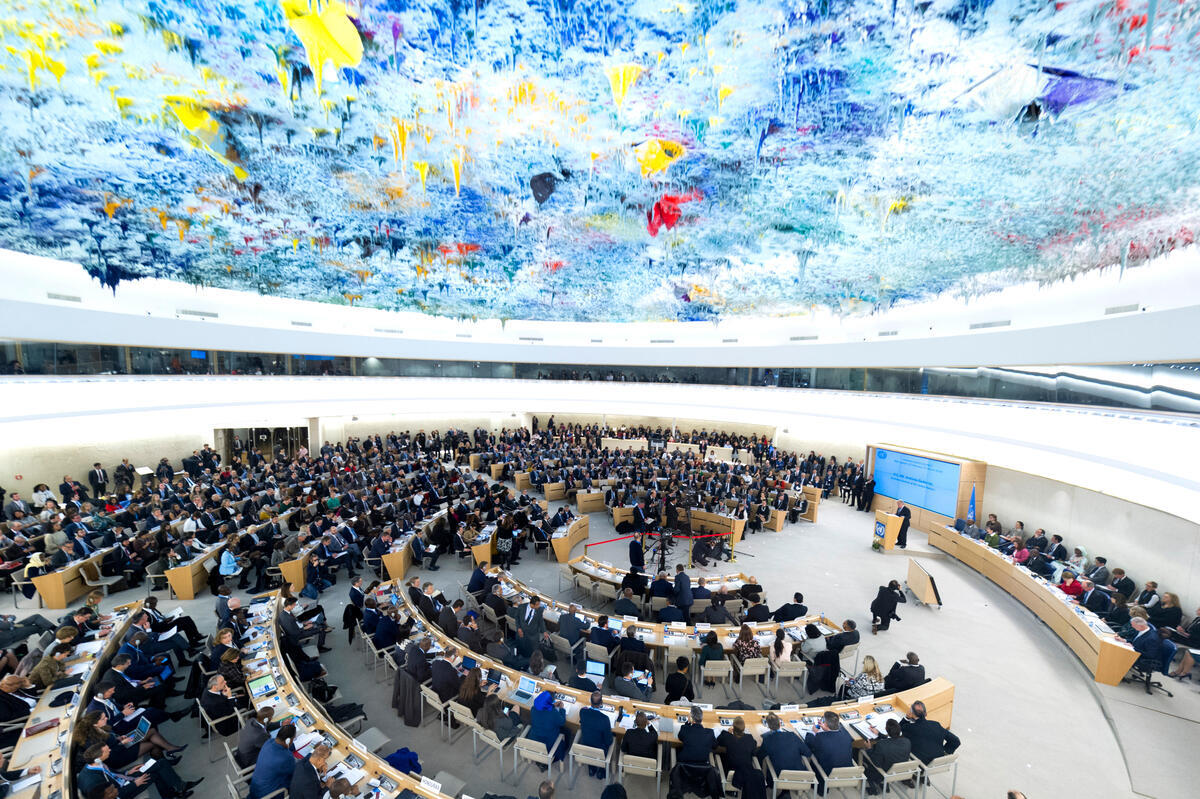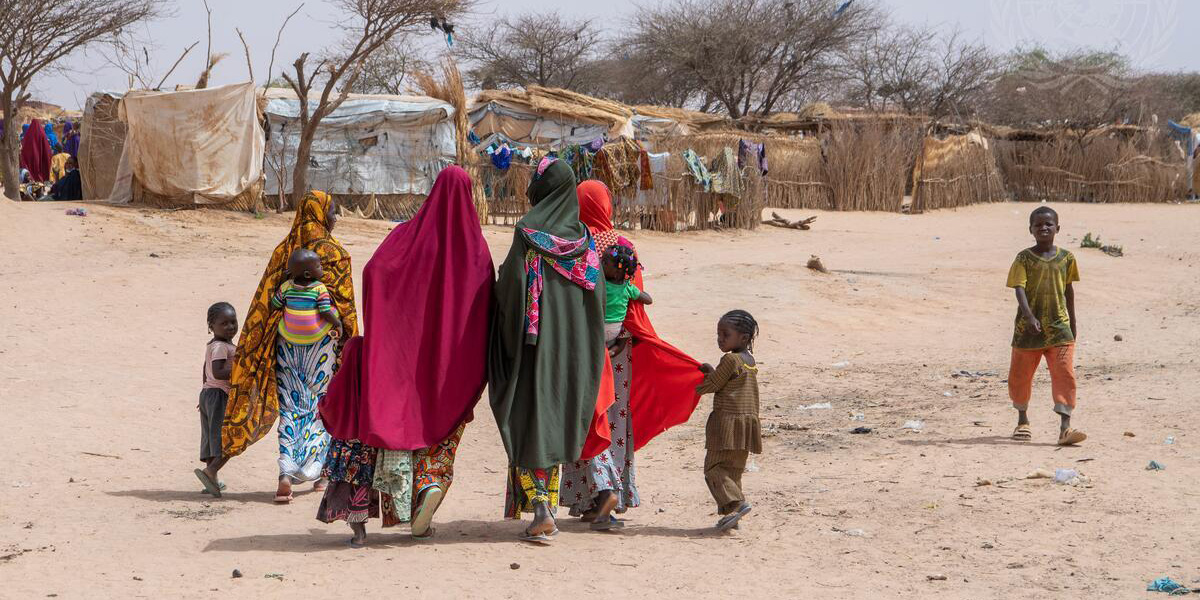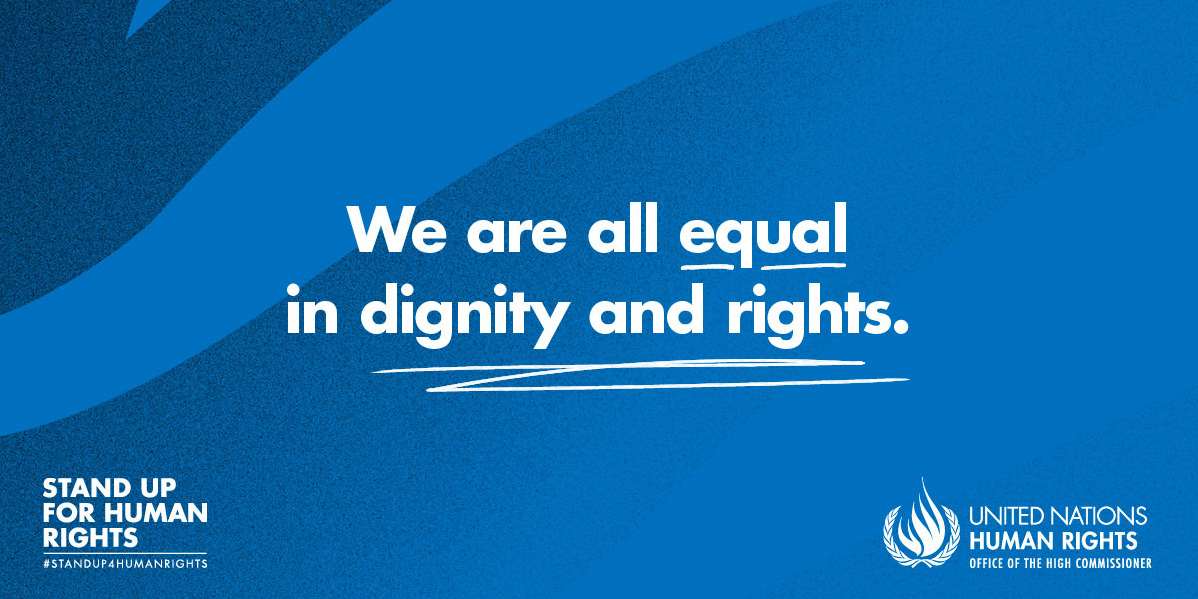
International human rights law lays down the obligations of Governments to act in certain ways or to refrain from certain acts, in order to promote and protect human rights and fundamental freedoms of individuals or groups.
One of the great achievements of the United Nations is the creation of a comprehensive body of human rights law—a universal and internationally protected code to which all nations can subscribe and all people aspire. The United Nations has defined a broad range of internationally accepted rights, including civil, cultural, economic, political and social rights. It has also established mechanisms to promote and protect these rights and to assist states in carrying out their responsibilities.
The foundations of this body of law are the Charter of the United Nations and the Universal Declaration of Human Rights, adopted by the General Assembly in 1945 and 1948, respectively. Since then, the United Nations has gradually expanded human rights law to encompass specific standards for women, children, people with disabilities, minorities and other vulnerable groups.
The Universal Declaration of Human Rights (UDHR) is a milestone document in the history of human rights. Drafted by representatives with different legal and cultural backgrounds from all regions of the world, the Declaration was proclaimed by the United Nations General Assembly as a common standard of achievements for all peoples and all nations. It sets out, for the first time, fundamental human rights to be universally protected. Since its adoption in 1948, the Declaration has been translated into more than 360 languages — the most translated document in the world — and has inspired the constitutions of many newly independent States and many new democracies. The UDHR, together with the International Covenant Civil and Political Rights and its two Optional Protocols (on the complaints procedure and on the death penalty) and the International Covenant on Economic, Social and Cultural Rights and its Optional Protocol, form the so-called International Bill of Human Rights.
The International Covenant on Economic, Social and Cultural Rights seeks to promote and protect:
the right to work in just and favourable conditions;
the right to social protection, to an adequate standard of living and to the highest attainable standards of physical and mental well-being;
the right to education and the enjoyment of benefits of cultural freedom and scientific progress, amongst other rights.
The International Covenant on Civil and Political Rights deals with such rights as freedom of movement; equality before the law; the right to a fair trial and presumption of innocence; freedom of thought, conscience and religion; freedom of opinion and expression; peaceful assembly; freedom of association; participation in public affairs and elections; and protection of minority rights. It prohibits arbitrary deprivation of life; torture, cruel or degrading treatment or punishment; slavery and forced labour; arbitrary arrest or detention; arbitrary interference with privacy; war propaganda; discrimination; and advocacy of racial or religious hatred.
A series of international human rights treaties and other instruments adopted since 1945 have expanded the body of international human rights law. They include the Convention on the Prevention and Punishment of the Crime of Genocide (1948), the International Convention on the Elimination of All Forms of Racial Discrimination (1965), the Convention on the Elimination of All Forms of Discrimination against Women (1979), the Convention on the Rights of the Child (1989) and the Convention on the Rights of Persons with Disabilities (2006), among others.

A wide view of the room as Secretary-General António Guterres (at podium) makes remarks at the opening of the 40th session of the Human Rights Council.
The Human Rights Council, established on 15 March 2006 by the General Assembly and reporting directly to it, replaced the 60-year-old UN Commission on Human Rights as the key UN intergovernmental body responsible for human rights. The Council is made up of 47 State representatives and is tasked with strengthening the promotion and protection of human rights around the globe by addressing situations of human rights violations and making recommendations on them, including responding to human rights emergencies.
Through its Universal Periodic Review mechanism, the Council assesses the human rights situation in all 193 UN Member States, every four years. The Review is a cooperative, state-driven process, under the auspices of the Council, which provides the opportunity for each state to present measures taken and challenges to be met to improve the human rights situation in their country and to meet their international obligations.
The United Nations High Commissioner for Human Rights exercises principal responsibility for UN human rights activities. The High Commissioner is mandated to respond to serious violations of human rights and to undertake preventive action.
The Office of the High Commissioner for Human Rights (OHCHR) is the focal point for United Nations human rights activities. It serves as the secretariat for the Human Rights Council, the treaty bodies (expert committees that monitor treaty compliance) and other UN human rights organs. It also undertakes human rights field activities.
Most of the core human rights treaties have an oversight body which is responsible for reviewing the implementation of that treaty by the countries that have ratified it. Individuals, whose rights have been violated can file complaints directly to Committees overseeing human rights treaties.
Human rights is a cross-cutting theme in all UN policies and programmes. As a result, virtually every UN body and specialized agency is involved to some degree in the protection of human rights. Some examples are the right to development, which is at the core of the Sustainable Development Goals; the right to food, championed by the UN Food and Agriculture Organization, gender equality, which is promulgated by UN Women, and labour rights, defined and protected by the International Labour Organization.
Human Rights Day is observed every year on 10 December.
The special procedures of the Human Rights Council are independent human rights experts who work on a voluntary basis with mandates to report and advise on human rights from a thematic or country-specific perspective. They are elected by the Human Rights Council for three-year mandates. As of October 2022, there are 14 country and 45 thematic mandates such as arbitrary detention, extrajudicial executions, torture, child prostitution, or denial of rights such as the rights to food, adequate housing, safe water, freedom of expression, and education.
With the support of the Office of the United Nations High Commissioner for Human Rights (OHCHR), they undertake country visits, act on individual cases or reported violations, contribute to the development of international human rights standards and engage in advocacy and raise public awareness.


Hate speech incites violence and undermines social cohesion and tolerance. Because fighting hate, discrimination, racism and inequality is at the core of United Nations principles and work, the Organization is working to confront hate speech at every turn.
LGBTIQ+ people around the world face an onslaught of hate speech, attacks, and restrictions on their rights. The power of communities is the theme this year which reminds us that we are strongest together. "LGBTIQ+ people, and those working with them to secure their rights, have proved time and again the value of communities in providing support and driving change," says UN Secretary-General António Guterres
"The theme of this year’s World Water Day reminds us of a cold, hard truth: glacier preservation is essential for security, prosperity, and justice." — António Guterres
"The poison of racism continues to infect our world – a toxic legacy of historic enslavement, colonialism and discrimination. It corrupts communities, blocks opportunities, and ruins lives, eroding the very foundations of dignity, equality and justice." — António Guterres